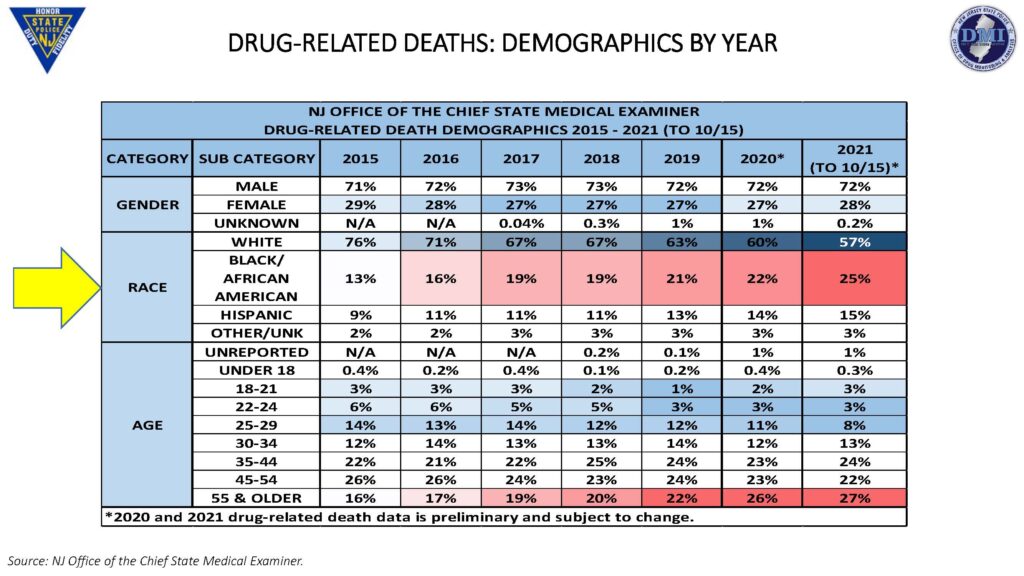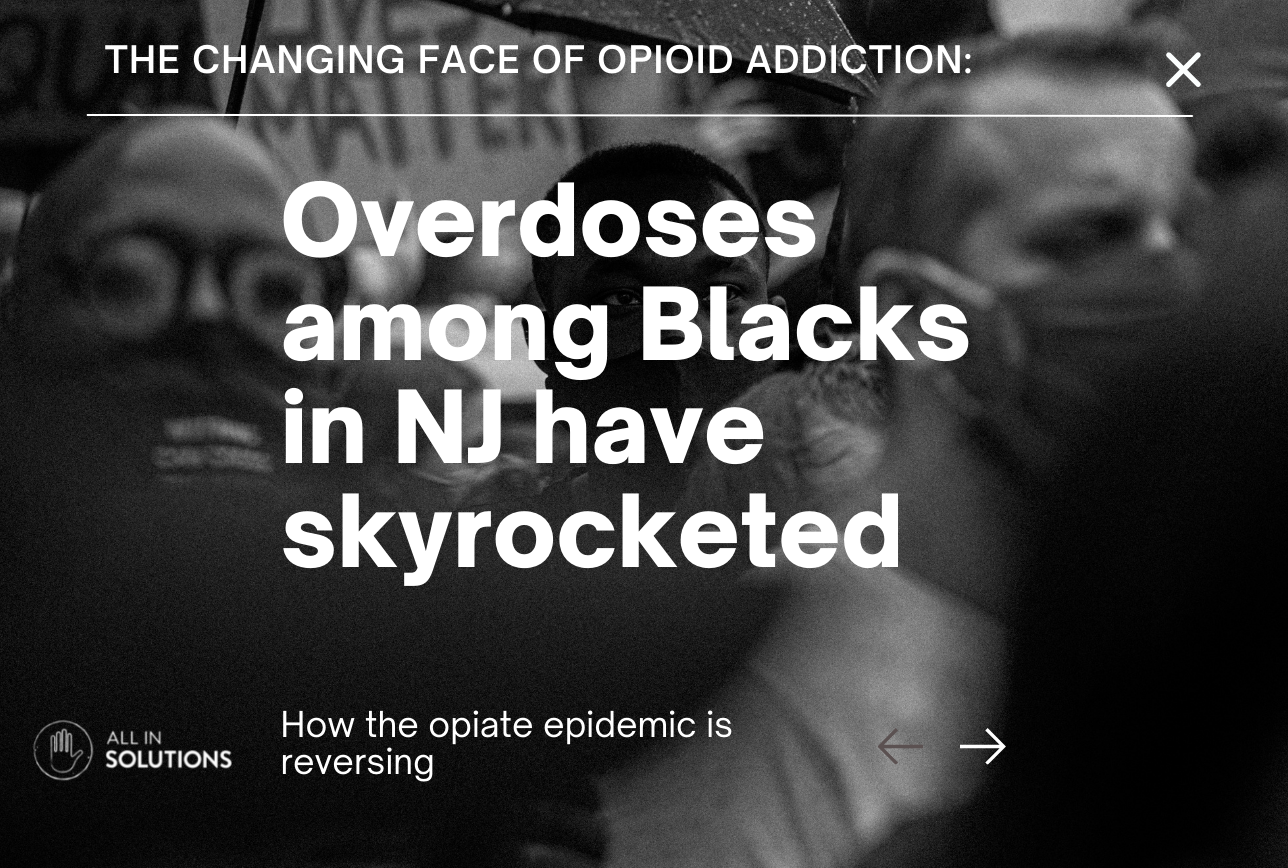In 2021, more than 3,000 people in New Jersey lost their lives to drug overdoses. The majority of these overdoses were caused by opioids and many were linked to illicit fentanyl. New Jersey, like many other states in the US, have made efforts to curb the effect of the opioid epidemic by improving access to opioid addiction treatment and increasing funding for addiction awareness, education, and harm reduction. An alarming new trend has begun to appear, however. The opioid epidemic’s traditional face, which had long been disproportionately white, has changed as Blacks are now more likely to die of overdose.
New Jersey Drug Overdose Deaths by Race
NJ Governor Phil Murphy stated at a recent opioid addiction event (which announced the Johnson & Johnson settlement the state is set to receive), “We know racial disparities exist everywhere, and this is no exception.” As of 2021, after several years of trend reversal, Blacks are now more likely to suffer fatal drug overdose than whites.
In 2021, the Black/African American community made up 12.4% of the population of New Jersey, but accounted for more than 25% of the overdose death rates. Whites in 2021 made up 51.9% of the population and 57% of overdose deaths in New Jersey. Some historical numbers help to put this shift into perspective.
Just a few years ago, in 2015 whites accounted for 76% of overdose deaths. In that time, the the demographics of the population haven’t changed that significantly, but the impact of opioids on the Black community absolutely have. Hispanics now also make up a larger portion of overdose deaths, representing 15% of deaths (a rise from 9% in 2015).
Source: https://www.nj.gov/oag/njcares/databyrace/Drug-Related%20Death%20Data.pdf

Why the Spike in Black Overdoses?
There is no one cause for the transformation, according to many addiction professionals and community advocates. They blame the shifts on long-standing disparities in healthcare access, as well as the lethal emergence of fentanyl, a strong synthetic increasingly found in heroin and other illicit narcotics like cocaine and counterfeit pharmaceuticals.
Furthermore, the COVID-19 pandemic has had a vast but unequal impact. They claim that the coronavirus not only disproportionately affected people of color, but it also contributed to an overall rise in drug usage, fueled by isolation, economic uncertainty, and emerging social worries.
Harrison Dillard, a former narcotics detective in Morris County and current president of the Hunterdon County NAACP said, “When things are good, they are not as good for people of color. And when things are worse, they are that much worse for people of color. This kind of shines a light on ongoing disparities.”
New Jersey has been working for years to improve its fractured treatment system, increasing availability of naloxone, an overdose reversal medicine, and pushing opioid maintenance meds like buprenorphine, which lower cravings. New Jersey increased its efforts and removed restrictions to telemedicine in the wake of the coronavirus epidemic. This made it easier for those suffering from addictions to communicate with their counselors and physicians over the internet.
But according to Dr. Kaitlan Baston of Cooper Center for Healing and Dr. Alexis Lapietra of St. Joseph’s University Medical Center, the efforts made to confront the problem of addiction have overlooked the Black community. They claim that black people continue to encounter higher challenges in getting treatment and obtaining proven-to-work drugs like buprenorphine.
For example, they added, urban Blacks are frequently assigned to methadone programs, which require users to visit a clinic every day to acquire their prescriptions. Commuters and parents without anybody to watch their children may face difficulties as a result.
In contrast, doctors can prescribe buprenorphine during an office visit, allowing patients to get up to a month’s supply to use at home.
Other inequalities exist and may contribute as well, such as poverty, a lack of insurance, transportation, or secure housing.
New Jersey Opiate Addiction Treatment
All In Solutions Counseling Center Cherry Hill offers treatment programs to help with all forms of substance use disorder, including opioid addiction. With individualized inpatient and outpatient programs and optional medication-assisted treatment plans, our New Jersey rehab is equipped to help individuals of every age, background, and walk of life find recovery and mental health. Call or visit our Cherry Hill addiction treatment center today to learn more.





